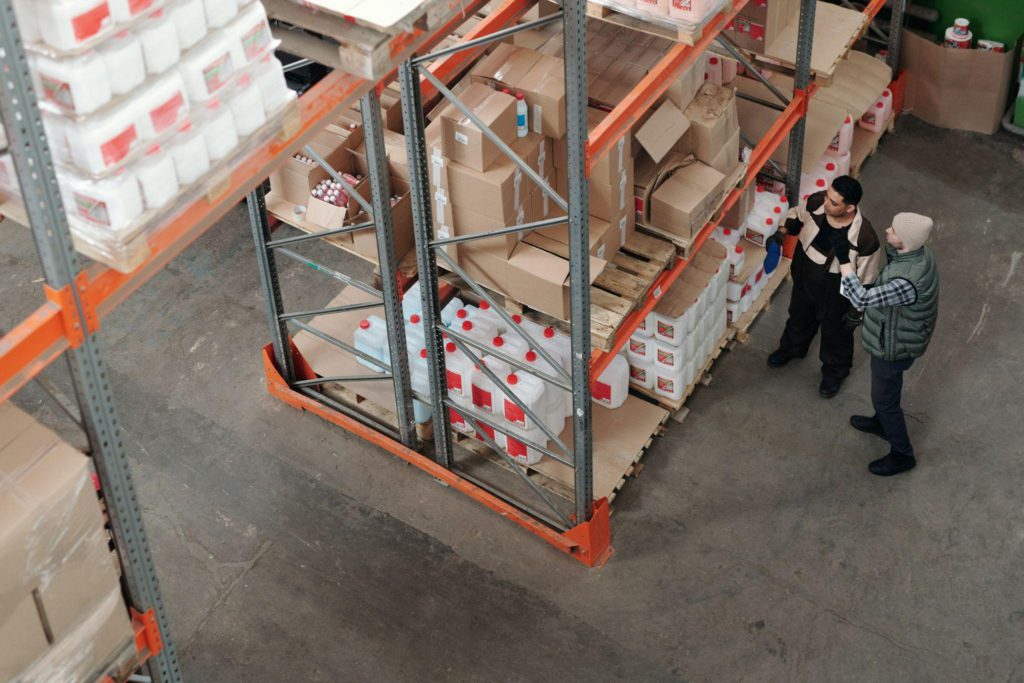This article provides a comprehensive overview of business storage solutions tailored to meet the specific needs of commercial enterprises.
It begins by emphasizing the importance of assessing individual storage requirements and explores various options available.
The article then delves into the customization of storage solutions, focusing on maximizing efficiency and organization within a business setting.
Lastly, it offers guidance on selecting the most suitable storage provider for businesses.
This informative piece aims to equip readers with valuable insights into streamlining their commercial storage operations.

Assessing Your Business Storage Requirements
Assessing business storage requirements involves evaluating the specific needs and demands of the commercial entity in order to determine the most suitable storage solutions. This process requires careful consideration of various factors, such as evaluating space limitations and implementing security measures.
Firstly, understanding the available space is crucial in determining the type and size of storage units required. It is essential to assess whether additional shelving or racks are necessary to maximize storage capacity efficiently.
Secondly, implementing security measures is vital to protect valuable business assets stored within the facility. This may include installing CCTV cameras, access control systems, and fire prevention mechanisms.
By thoroughly evaluating these aspects, businesses can ensure that their storage solutions align with their unique requirements while providing a safe and secure environment for their valuable items.
Exploring Different Storage Options
Examining various storage alternatives is crucial for businesses seeking to optimize their logistical operations. In today’s rapidly evolving business landscape, staying updated on storage trends is essential. One prominent trend is the increasing popularity of outsourcing storage solutions.
Outsourcing allows businesses to free up valuable space and resources by delegating their storage needs to specialized providers. This not only reduces operating costs but also ensures that businesses have access to state-of-the-art facilities and technologies without the need for significant investments. Additionally, outsourcing provides flexibility in scaling up or down storage capacity as per business requirements, enabling companies to adapt quickly to changing market conditions.
Moreover, it allows businesses to focus on their core competencies while leaving the management of storage operations to experts who possess extensive knowledge and experience in this field.
Overall, exploring different business storage options including outsourcing can offer numerous benefits for businesses looking to streamline their operations and enhance efficiency.
Customizing Storage Solutions for Your Specific Needs
Customization of storage options is essential for businesses to meet their specific requirements and optimize operational efficiency. By customizing storage solutions, businesses can tailor the design and layout of their storage spaces to best suit their needs. This includes optimizing space utilization by utilizing different storage systems such as pallet racking, shelving units, or mezzanine floors.
Customization also allows for the incorporation of specialized features like temperature control or security measures to protect sensitive items. Efficient use of space not only maximizes storage capacity but also improves accessibility and retrieval times, reducing downtime and increasing productivity.
Furthermore, customization enables businesses to adapt their storage solutions as their needs evolve over time. By considering factors such as inventory size, product characteristics, and workflow patterns, businesses can create a customized storage solution that enhances overall operations and streamlines processes.
Maximizing Efficiency and Organization in Your Business Storage
Maximizing efficiency and organization in the storage system is crucial for businesses to optimize operational performance and ensure seamless workflow.
Improving inventory management plays a vital role in achieving this goal. By implementing effective inventory tracking and management systems, businesses can minimize stockouts, reduce excess inventory, and streamline order fulfillment processes. Utilizing technology such as barcode scanners and real-time inventory tracking software enables accurate monitoring of stock levels and facilitates timely replenishment decisions.
Additionally, optimizing warehouse space is another essential aspect of maximizing efficiency. Businesses can achieve this by utilizing vertical storage solutions, implementing efficient shelving systems, and employing space-saving techniques such as cross-docking or just-in-time delivery strategies. Properly organized storage areas not only enhance accessibility but also improve overall productivity by reducing time wasted on searching for items and ensuring efficient use of available space.
Choosing the Right Storage Provider for Your Business
Selecting an appropriate storage provider for a company involves evaluating various factors such as the provider’s track record, available infrastructure, and capacity to meet operational requirements. It is important for businesses to consider cost-effective storage solutions that can efficiently manage their storage needs.
A reliable storage provider should offer competitive pricing and flexible plans that align with the company’s budget. Additionally, security measures are paramount when choosing a business storage facility. The provider should have robust security protocols in place, such as 24/7 surveillance, access control systems, and fire protection measures. These measures ensure the safety and protection of valuable business assets stored within the facility.
By carefully considering these factors, businesses can select a suitable storage provider that offers cost-effective solutions while prioritizing the security of their stored items.









